Brave Like Kap
NFL quarterback Colin Kaepernick took a risk with his national-anthem protest against injustice in the U.S. Now other athletes are joining him, as are countless other Americans who want to overturn the status quo. Their courage can make all the difference.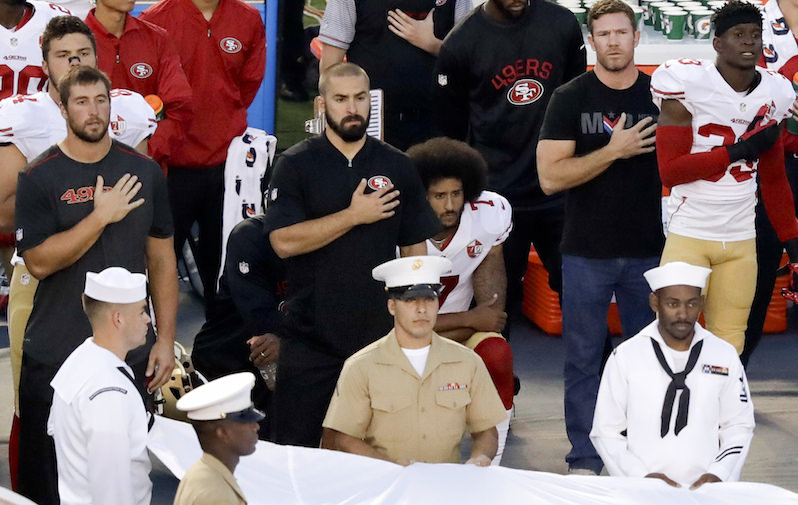 Colin Kaepernick is using his platform as a professional athlete to increase awareness of racism and decrease oppression. (Ben Margot / AP)
Colin Kaepernick is using his platform as a professional athlete to increase awareness of racism and decrease oppression. (Ben Margot / AP)
Editor’s note: On Sept. 11, the opening day of the 2016 NFL season, many players from around the league joined Colin Kaepernick’s protest.
One of my favorite poems is “The Road Not Taken” by Robert Frost.
Two roads diverged in a yellow wood, And sorry I could not travel both And be one traveler, long I stood And looked down one as far as I could To where it bent in the undergrowth;
Then took the other, as just as fair And having perhaps the better claim Because it was grassy and wanted wear; Though as for that the passing there Had worn them really about the same,
And both that morning equally lay In leaves no step had trodden black. Oh, I kept the first for another day! Yet knowing how way leads on to way, I doubted if I should ever come back.
I shall be telling this with a sigh Somewhere ages and ages hence: Two roads diverged in a wood, and I— I took the one less traveled by, And that has made all the difference.
I learned (thanks to The Paris Review and David Orr, who wrote a book on the subject) that I have been misreading the poem for more than 30 years. All this time, I thought “The Road Not Taken” was about individualism. I was half right. The poem is about individualism: “I took the one less traveled by, / And that has made all the difference.” But the poem also is not about individualism: “Then took the other, as just as fair, / And having perhaps the better claim, … the passing there / Had worn them really about the same.” The two roads, Orr notes, are “equally travelled,” thus “interchangeable.” More than being only about individualism, the poem is a commentary on the enigmatic act of choosing and the crossroads we face in making all choices.
Take Colin Kaepernick. By choosing not to stand for the national anthem, the San Francisco 49ers quarterback has stood up for justice. He has raised awareness of police brutality and oppression against African-Americans in the United States. He has exposed the anti-Muslim origins of “The Star-Spangled Banner” and forced us to address the uncomfortable: institutional racism. Kaepernick’s act of rebellion was a risk from the start. The cost to him has been a stream of criticism and public blowback. But his courage has sparked a national conversation on free speech and what it means to be an American in the 21st century.
We honor those who fight for our right to freedom of speech and then condemn those who exercise that right?
— Doug Baldwin Jr (@DougBaldwinJr) September 2, 2016
Don’t tell me you just disagree with the methods. You really mean to say you disagree with the cause.
— Doug Baldwin Jr (@DougBaldwinJr) September 2, 2016
To change the status quo you have to upset the status quo. Not by going with the flow.
You have to stand/sit for what you believe in.
— Doug Baldwin Jr (@DougBaldwinJr) September 2, 2016
Now other athletes are joining the cause. U.S. women’s soccer player Megan Rapinoe has expressed support. So did the West Virginia Tech volleyball team. The entire Seattle Seahawks squad is planning a show of solidarity before its season-opening game against the Miami Dolphins on Sunday, the 15th anniversary of the 9/11 terror attacks. According to Pro Football Talk, the team will stand together during the national anthem with their arms interlocked. “We are a team comprised of individuals with diverse backgrounds, and as a team we have decided to stand and interlock arms in unity,” wide receiver Doug Baldwin explained in a video on Twitter. “We honor those who have fought for the freedom we cherish, and we stand to ensure the riches of freedom and the security of justice for all people. Progress can and will be made only if we stand together.”
These kind of actions can have a ripple effect.
“Anything we want to do, it’s not going to be individual. It’s going to be a team thing,” Seahawks linebacker Bobby Wagner told The Seattle Times. “That’s what the world needs to see. The world needs to see people coming together versus being individuals.”
This show of unity includes sports legends like Cleveland Browns Hall of Fame running back Jim Brown. The longtime social activist is happy to see Kaepernick using his high-profile platform to call out injustice. “He’s within his rights, and he’s telling the truth as he sees it,” Brown said. “I am with him 100 percent. … The young men of today are stepping up. For so many years, they did not step up. For me, it’s like going back in time.”
In 1967, Muhammad Ali started the modern era of socially and politically conscious athletes by refusing to be drafted to fight in the Vietnam War. Ali’s protest, made because of his religious convictions, led to the “Ali Summit,” a gathering of famous black athletes, including Brown, to support the boxing champion, who essentially sacrificed his fighting career to stand up for what he believed in outside of the ring. The summit was a seminal moment in U.S. history and began the transcendence of Ali to cultural icon. Long before any Black Lives Matter movement, Ali was shining a light on racism and promoting civil rights for blacks.
The flesh and the blood of our people is more important than the white man’s money. Money don’t mean nothing if you’re black to the white man. I don’t care if you have a five hundred dollar house or five hundred thousand dollar house. You’re still a nigger.
Adam Clayton Powell, a big black man, bumped him off in your face unjustly.
Martin Luther King, a big black man, bumped him off in your face unjustly.
Muhammad Ali, the biggest black man in all the history of boxing, bumped me off unjustly in your face.
So excuse the expression, money ain’t worth a damn thing when it comes to wanting to be a man. And I’m proud to say that I’m the first black man in the history of all America, athlete and entertainer, who gave up all the white man’s money. Looked the white man in his eye and told him the truth. … And it will always be said—there’s one that didn’t compromise.
See, there’s only two kind of men: those who compromise and those who take a stand. Those who take a stand are the ones who they will write history about.
No doubt, Ali would be proud of Kaepernick’s protest.
Kareem Abdul-Jabbar, the NBA’s all-time leading scorer and a former cultural ambassador for the United States, believes Kaepernick’s actions should be applauded by all Americans.
What should horrify Americans is not Kaepernick’s choice to remain seated during the national anthem, but that nearly 50 years after Ali was banned from boxing for his stance and Tommie Smith and John Carlos’s raised fists caused public ostracization and numerous death threats, we still need to call attention to the same racial inequities. Failure to fix this problem is what’s really un-American here.
A powerful force has been awakened in America. It is the force of opposition, and the winds of change are blowing. People are emerging from the shadows with an unmistakable message. They are saying: “Enough.”
Minorities in America (African-Americans, Latinos, Native Americans, Asians) are becoming the majority. The United States is a big melting pot of cultures, and we—huge numbers of Americans of every race and ethnicity—are tired of oppression. We are tired of old white people running everything. We are tired of being controlled and told no. We are tired of the school-to-prison pipeline, environmental degradation, corporate malfeasance and evil. So we are no longer going to accept it or cooperate with the status quo.
That status quo is what Colin Kaepernick is protesting.
He is one with the No DAPL protectors of Mother Earth who are opposing the Dakota Access pipeline.
He is one with the prisoners and organizers of the current nationwide prison strike to end slave labor.
He is not afraid of getting dirty or making a personal sacrifice. Democracy can be messy and controversial. It can get people angry and frustrated. But now is when people need to get engaged, stop being cynical, start getting active and work together to find solutions.
Kaepernick realizes what is at stake. His stance is bigger than a protest against a national anthem. It is bigger than a protest of police brutality against African-Americans. It is about survival—for future generations, for all of us.This is 2016. We, the people of the United States, should not have to keep focusing on racial differences. We should not need to be divided and feel a need to fight each other. There is one race—the human race. Just as the paths in “The Road Not Taken” are interconnected, we are all related. There is no reason why we cannot live in a world of peace where everyone has the opportunity to live in dignity with universal health care, good education and decent living wages.
This is our world. Each one of us has the potential to make it better. All we have to do is choose.
The establishment wants to keep the 99 percent distracted, keep them fighting, at eternal war, to divide and crush the will of the people and maintain a master-slave hierarchy. Presidential elections are part of the circus, but people are wising up and getting organized. Little by little, people are seeing that they can fight for human rights—as investigative journalist Seymour Hersh has for decades—no matter the obstacles.
Kaepernick is not the first athlete to take a stand, nor will he be the last. Not everyone agrees with his methods, some may disagree with his message. But anyone who has a problem with him exercising his constitutional right to express dissent is missing the point.
Democracy is in a scary place right now. We need to stop bickering and begin difficult dialogues. Then we need to pause, reflect and figure out how to best move forward. The script of the 0.1 percent can be flipped. There are more of us than them.
“This is what a stand looks like,” writes Bomani Jones on The Undefeated. “For better or worse, stands that demand people come together rarely have that effect. And contrary to popular belief, stands do not create divisions and fissures. They amplify them. The whole point of a stand is to put them on display, to ask the world to confront and examine their hypocrisies and ask why they’re on one side and not the other. Protests that don’t offend aren’t worth the effort. The ones that do are the ones that can change the world.”
America’s racial problems are nothing new. Since the founding of our country, race relations have been a source of contention. In 1969, James Baldwin gave a talk on what is white and what is black in the Western world, touching on race, imperialism and identity.
His words were prophetic and still resonate.
Well, if the day comes when you realize, and you don’t want to realize it, that you cannot make yourself heard. That the people who you are addressing a plea—for them and for you—the plea is a very simple one. It’s saying, “Look at it.” Forget all the mountains of nonsense that have been written, everything that has been said. Forget the Negro problem. Don’t write any voting acts—we had that. It’s called the 15th Amendment. They’re in the Civil Rights Bill of 1964.
What you have to look at is what is happening in this country, and what is really happening is that brother has murdered brother knowing it was his brother. White men have lynched Negroes knowing them to be their sons. White women have had Negroes burned knowing them to be their lovers. It is not a racial problem. It’s a problem whether or not you’re willing to look at your life and be responsible for it and then begin to change it.
That great Western house I come from is one house, and I am one of the children of that house. Simply, I am the most despised child of that house. And it is because the American people are unable to face the fact that I am, in fact, I am the flesh of their flesh, bone of their bone, created by them. My blood, my father’s blood is in that soil. They can’t face that. And that is why the city of Detroit went up in flames. And that is why … the city of Saigon was under martial law. I know there are 400 years in that house. …
It seems to me, though, that the great difficulty that we face is first of all to excavate our actual history. And I am part of the history that occurred in the Caribbean. And you are a part of the history, which occurred in Harlem. One’s got to find the terms; one’s got to accept that. And find out how to use that. And one has got to decide, I think, that the actual and the moral basis of which the world we know now rest are obsolete, must be changed, and as far as they are obsolete, they are wicked, as far as they are obsolete, they are oppressive. It is simply not conceivable that for another 500 years, 200 years or 100 years, that the blacks of South Africa, for example, should live and die in the mines, being treated like animals to make other people rich. Very simply, the civilization, which is doing this by doing this, dooms itself. It is not possible to agree with it, nor is possible to compromise with it. Freedom is not, freedom is, of much, a much-overused word. And it may not be as real as slavery. Which is a very concrete thing. But freedom is what one’s after. And as it cannot, I suppose, be given, then it obviously must be taken.
Now is the time for our “Me” era to become a “We” era. Forget party lines. Curb greed. Think about the greater good. There are about 325 million people living in the United States. If half (161 million) of the 99 percent of them engaged in one simple act of civil disobedience a day, imagine what could happen next.
“Nonviolence is the greatest force at the disposal of mankind,” said Gandhi. “It is mightier than the mightiest weapon of destruction devised by the ingenuity of man.”
It’s not too late to choose a new path.
Your support matters…Independent journalism is under threat and overshadowed by heavily funded mainstream media.
You can help level the playing field. Become a member.
Your tax-deductible contribution keeps us digging beneath the headlines to give you thought-provoking, investigative reporting and analysis that unearths what's really happening- without compromise.
Give today to support our courageous, independent journalists.

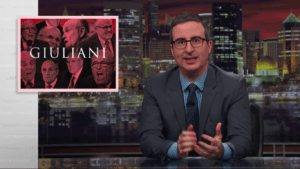
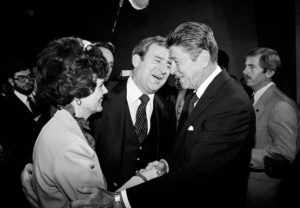
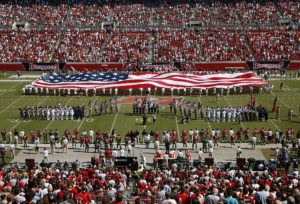
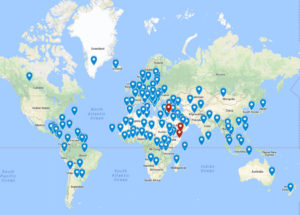
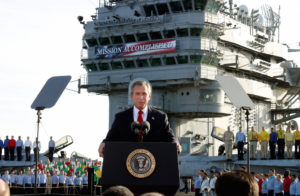
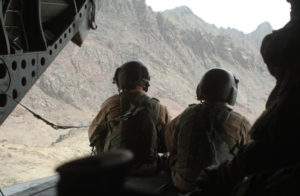


You need to be a supporter to comment.
There are currently no responses to this article.
Be the first to respond.